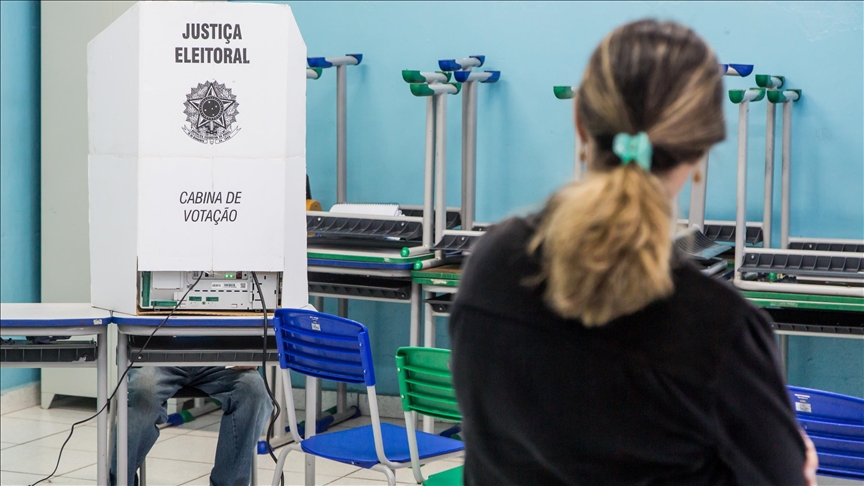

By Anadolu Agency
LONDON
Around 156 million Brazilians will head to the polls Sunday to cast their ballots for the next president in a country where voting is compulsory.
A number of key positions are in contention as 11 candidates vie to become Brazil’s next leader.
In addition to the president, Brazilians will elect one-third of their senators along with 513 deputies, all 27 governors, and state legislatures.
If no candidate gains a majority for the presidency, a second-round vote is expected on Oct. 30.
Observers have called these presidential elections the most divisive in recent decades between the two frontrunners — left-wing candidate and two-time president Luiz Inácio Lula da Silva and far-right incumbent Jair Bolsonaro.
Lula, a former union leader, was a candidate during the 2018 presidential election until a corruption and money laundering conviction curtailed his political aspirations. He was sent to prison and Bolsonaro, a former army captain, won the presidency.
In 2019, Lula was released from prison after his convictions were overturned by the Supreme Court, allowing him to run again for office.
Amid the political polarization, Brazil is also grappling with inflation, rising unemployment, food insecurity, and environmental concerns.
This year, Brazil returned to the United Nations Hunger Map after eight years — with 33 million citizens experiencing hunger, according to a recent study.
During this presidential campaign, Lula has pledged to tackle inflation and called it a “commitment” to tackle food insecurity and to “rebuild” Brazil.
In the first TV debate, he said that during his tenure, his government had implemented a model of social inclusion and job creation. Recently at a campaign rally, he vowed to provide people with disabilities more opportunities to discuss public policies.
During the campaign trail, Bolsonaro has tied inflation to the coronavirus pandemic and the Russia-Ukraine war and promised to maintain welfare programs for around 20 million families. The far-right leader has pushed the “good” versus “evil” narrative in reference to the opposition while defending conservative Christian and family values and decrying drugs, abortion and “gender ideology.”
Amid environmental concerns, Lula has pledged to create an Indigenous Affairs Ministry, stop illegal gold prospecting in the Amazon, and rebuild the Ibama environmental agency. Many environmentalists and defenders of Indigenous peoples and their land rights have denounced Bolsonaro’s policies, insisting he has removed environmental protections in the Amazon, resulting in ecological destruction.
During the tense battle for Brazil’s presidency, rights groups have condemned the failure of social media platforms to combat election disinformation.
For over a year, Bolsonaro has also cast doubt over whether he will respect the election results, raising concerns about Brazil’s electronic voting system without providing evidence.
The October election will be the first since Bolsonaro took office in January 2019 as fears persist of potential political violence, with rights groups suggesting he may contest the vote and reports of some Bolsonaro backers killing supporters of Lula amid the charged environment.
We use cookies on our website to give you a better experience, improve performance, and for analytics. For more information, please see our Cookie Policy By clicking “Accept” you agree to our use of cookies.
Read More